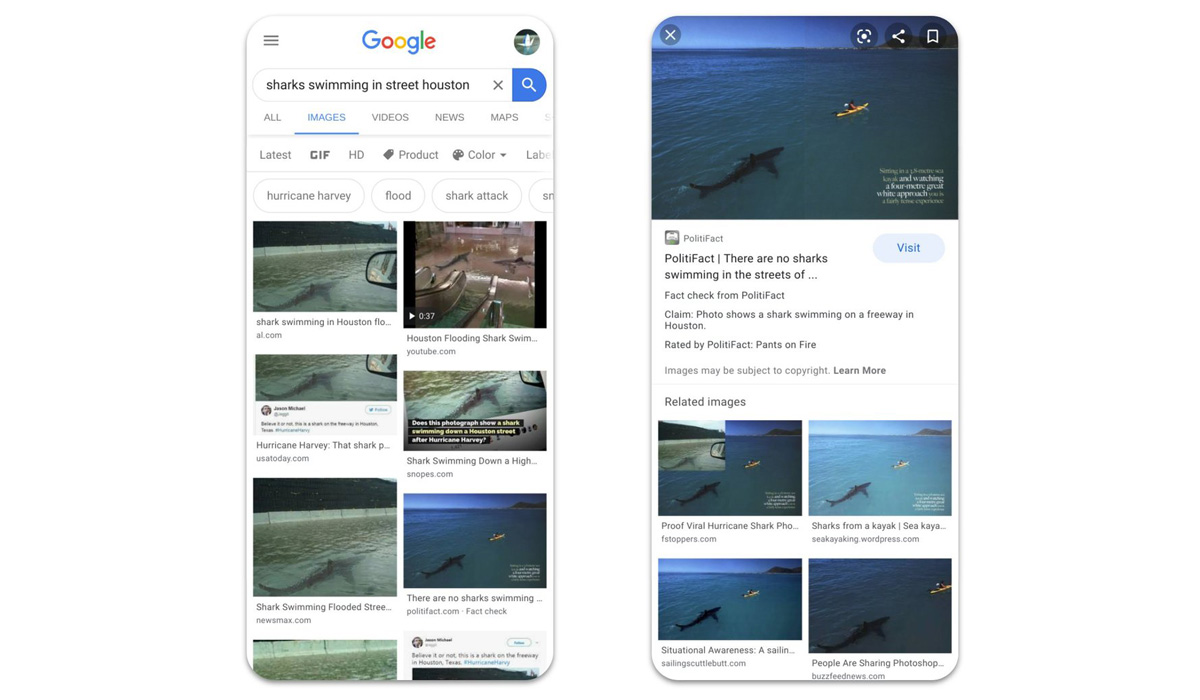Google product manager Harris Cohen wrote that photos are a great way to help users to be aware of current affairs or events, but the format has its pitfalls from being truly credible. Especially when there are questions surrounding the origin, authenticity or context of an image. Cohen explained that the new fact checking feature will be powered by publishers themselves, who can now opt to tag images that have been fact-checked via ClaimReview. This method enables publishers to communicate with search engines to verify specific images to confirm their authenticity. The blog post included an example of how the feature is utilised, where clicking on a bogus image will display a label containing additional information from fact-checking sources such as PolitiFact. Should the image be manipulated in any way, the feature would also provide the user with a pre-manipulated image for debunking purposes. Google said that fact-checking labels included in image search results does not affect ranking. In the interest of curbing misinformation, the company assured that their systems are designed to surface the most relevant, reliable information available, including from sources that provide fact checks. (Source: Google Official Blog)
